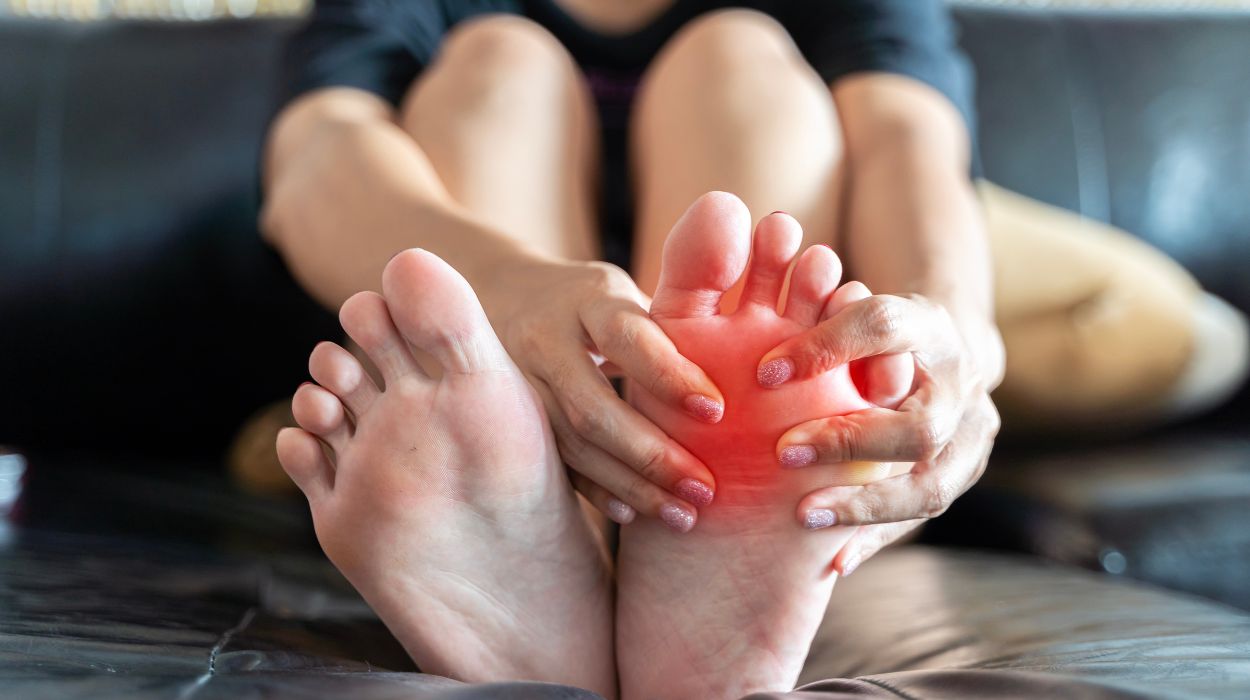 Expert's opinion
Expert's opinion
Expert's opinion
The article is a subjective view on this topic written by writers specializing in medical writing.
It may reflect on a personal journey surrounding struggles with an illness or medical condition, involve product comparisons, diet considerations, or other health-related opinions.
Although the view is entirely that of the writer, it is based on academic experiences and scientific research they have conducted; it is fact-checked by a team of degreed medical experts, and validated by sources attached to the article.
The numbers in parenthesis (1,2,3) will take you to clickable links to related scientific papers.
Does Alcohol Cause Inflammation? Here’s The Answer In 2024

Alcohol use disorder has been linked to acute and chronic diseases. But does alcohol cause inflammation directly? Alcohol intake is linked to a range of adverse health outcomes, from mental to physical symptoms. For example, alcohol affects anxiety but, yes, too much of it can also cause inflammation.
Acute inflammation is usually good because it’s your body’s response to fighting illnesses and healing injuries. However chronic inflammation from alcohol use disorder is more concerning because it contributes to organ, cell, and tissue damage.
Want to understand how alcohol contributes to inflammation and how to reduce alcohol-induced inflammation? Read on to learn about the current research on alcohol consumption, inflammation, and the risks of being chronically inflamed.
Does Drinking Alcohol Cause Inflammation?
Is alcohol inflammatory? Alcohol consumption triggers inflammation,[1] both acute and chronic. Excessive drinking causes alcohol-induced inflammation by:
- Increasing gut permeability.
- Negatively affecting the gut microbiome.[2]
- Suppressing the immune system.
- Triggering intestine inflammation.
Chronic inflammation from alcohol suppresses the immune system and can contribute to heart disease, fatty liver disease, organ damage, and mental illness.
How Does Alcohol Contribute To Inflammation?

The alcohol and inflammation link is well established, but does vodka cause inflammation too?
While alcohol can cause inflammation if consumed in large quantities, some research paradoxically suggests alcohol can help reduce pain such as arthritis symptoms.[3] However, we don’t yet fully understand the mechanisms.
Alcohol contributes to inflammation in general:
Increasing Gut Permeability
Healthy intestines tightly regulate the absorption of certain substances into the body. Alcohol disrupts gut function,[4] leading to increasing permeability of the intestinal lining. This increases the risk of your body absorbing partially digested and inflammatory foods, bacteria, or toxins into the bloodstream, causing inflammation.
This triggering of inflammation in the gastrointestinal tract[5] can lead to systemic inflammation and damage to organs around the body.
Disrupting Gut Microbiome
Alcohol leads to an overgrowth of pathogenic bacteria in the gut, increasing the levels of bacterial toxins[6] which further destroy the protective mucosal layer of the intestinal wall.
Because of the increased gut permeability, harmful bacteria can also enter the bloodstream and cause an inflammatory response in organs around the body.
Translocating Lipopolysaccharide
Lipopolysaccharide,[7] also known as LPS, is a toxin present in the cell walls of some pathogenic bacteria. Long-term alcohol consumption damages the gut, liver, and other organs, partially by toxic LPS being absorbed into the body.
Suppressing Immune Function
Excessive alcohol consumption is strongly correlated with immune system-related health problems.[8]
Under the stress of chronic alcohol consumption, the body becomes more vulnerable to illnesses like pneumonia, sepsis, alcoholic liver disease, some cancers, respiratory stress syndrome, and slow wound healing as the immune system deteriorates.
Effects Of Inflammation On Your Health
During acute inflammation, the immune system releases white blood cells to the affected area, causing symptoms such as redness and swelling. These symptoms are part of the healing process.
However, if this acute immune response fails to resolve the condition, inflammation may persist, leading to systematic chronic inflammation.
Here are some conditions that can be caused by inflammation:
Weakened Immune System

White blood cells commonly respond to inflammation and infections. According to research, alcohol disrupts these immune pathways,[8] reducing the body’s ability to protect vital organs and damaged tissues from infection and disease.
Chronic inflammation is linked to an increased white blood cell count by continually triggering an immune response. But more white blood cells don’t necessarily mean a better immune system. Research shows that the function of these white blood cells becomes compromised in heavy drinks, increasing the risk of viral and bacterial infections.
Cardiovascular And Heart Disease
A higher number of white blood cells is also associated with a higher risk of inflammatory diseases, especially cardiovascular disease, heart disease,[9] and cancer.
High inflammatory proteins[10] called cytokines also increase the risk of cardiovascular disease. Inflammation in blood vessel walls raises blood pressure while decreasing blood flow in and out of the heart. This can result in chest pressure after light activities and increase the risk of a heart attack.
Arthritis And Other Chronic Pain Conditions
A high level of inflammatory cytokines increases joint inflammation[11] and pain sensitization, which has a knock-on effect on your mental health, too. Inflammation is a common mechanism in rheumatoid arthritis,[12] an autoimmune disease.
Other chronic pain conditions[13] caused by chronic inflammation include Crohn’s disease, multiple sclerosis, and fibromyalgia.
Oddly, studies suggest that drinking alcohol is linked to lower odds of chronic pain.[14] However, the relationship between alcohol, inflammation, and chronic pain is not yet fully understood.
Fatty Liver Disease
The breakdown of alcohol produces harmful substances[15] that cause inflammation and can damage the liver. Chronic liver inflammation can lead to alcoholic fatty liver disease,[16] which, if untreated, can eventually result in liver failure.
Alcoholic fatty liver disease is, unfortunately, a self-fulfilling prophecy. Excessive fat stores in the liver impair its ability to convert alcohol to a form that can be safely removed from the body, leading to further liver damage.
Mental Illness
Excessive drinkers frequently suffer from mental health issues[17] such as stress and depression. Conversely, researchers have found that optimists have lower levels of chronic inflammation[18] and are less likely to be depressed.
Other mental health disorders that may be worsened by chronic inflammation include dementia,[19] bipolar disorder,[20] autism spectrum disorder,[21] and post-traumatic stress disorder.[22]
Tips To Reduce Alcohol-Related Inflammation
So many factors determine the effects of alcohol on your body, including sleep quality, hydration status, the type and amount of alcohol consumed, and overall physical health. Here are some tips to help you reduce the inflammatory potential of alcohol in your body.
Drink Less
Drinking less is the most obvious way to reduce alcohol-induced inflammation. Reducing your daily alcohol intake or drinking less often helps your body recover between drinks.
Try gradually changing your drinking habits to moderate alcohol consumption or, eventually, abstaining from alcohol consumption altogether. The Centers for Disease Control and Prevention[23] recommends no more than one drink daily for women and two for men.
When consumed in moderation, some studies suggest that alcohol might even be protective against inflammation.[24]
Improve Your Diet

Many foods contain antioxidant and anti-inflammatory compounds, particularly colorful fruits and vegetables. Fruits and vegetables contain phytonutrients and fiber,[25] beneficial plant nutrients that can help reduce inflammation.
Spices with anti-inflammatory properties, such as ginger, turmeric, caraway, and rosemary, can also be used to season foods.
Avoid Drinking On An Empty Stomach
Eating before drinking slows gastric emptying,[26] which is the movement of materials from the stomach to the small intestines. This slows down the rate of alcohol absorption, which can lessen the negative impact on your body. It also reduces alcohol addiction potential.
So, if you choose to drink alcohol, it is best to consume it with a meal.
Manage Your Stress Levels
Chronic stress is associated with chronic low-grade inflammation.[27] Both stress and alcohol consumption can trigger brain inflammation,[28] which increases the likelihood of depression and other mental illnesses.
Reduce your stress levels by minimizing alcohol intake, getting enough sleep,[29] meditating, and practicing mindfulness.[30]
The Worst Types Of Non-Alcoholic Drinks For Inflammation To Avoid
So you’ve decided to cut down on alcohol. What should you drink instead? Unfortunately, even some non-alcoholic drinks can trigger inflammation. These are the worst inflammation-inducing non-alcoholic drinks to avoid:
Soda
Drinking sugar-sweetened beverages such as sodas is associated with inflammation and obesity.[31] Sodas contain sugar, flavors, sweeteners, artificial colors, and preservatives that might increase inflammation by damaging the gut microbiome.[32]
Natural beverages like tea or flavored water are the best drinks for inflammation. Water can be enhanced with natural flavors such as lemon, cucumber, crushed fruit, or peppermint leaves.
Energy Drinks
Energy drinks are sodas with added vitamins and stimulants. They have a high sugar content and artificial ingredients that increase the risk of inflammatory diseases such as diabetes.
If you’re looking for an energy boost, try getting your caffeine hit from coffee or tea instead. When consumed in moderation, these drinks contain anti-inflammatory compounds that might help reduce inflammation[33]. Avoid hot drinks laden with sugar, flavored syrups, and high-calorie cream, though!
Fruit Juices
Some fruit juices, such as orange juice, contain bioactive compounds that can help reduce inflammation.[34] However, without the fiber and skin from the fruit, some cheap fruit juices are simply sugar-concentrated natural drinks that, if consumed in excess, might even worsen inflammation.
Many fruit juice brands contain added sugar, which is pro-inflammatory.[35] Smoothies are a healthier option because they can include fruits, vegetables, and nuts, providing a more complete nutritional profile.
Flavored Coffee

Cappuccinos, lattes, and frappucinos are coffee drinks with added sugar, milk, flavored syrups, and cream. The high sugar and fat content may cause an inflammatory reaction. For a healthier alternative, flavor plain coffee or tea with vanilla, cinnamon, or low-fat milk.
Other Ways To Reduce Inflammation In the Body
Aside from alcohol, your diet, lifestyle, and genetics can also determine your risk of chronic inflammation. Try better managing your body’s inflammation levels by:
Changing Certain Medications
Nonsteroidal anti-inflammatory drugs[36] such as aspirin and ibuprofen are commonly used to treat acute inflammation and alleviate short-term pain. For chronic inflammation, corticosteroids such as cortisol might be prescribed to alleviate symptoms.
Fasting
Fasting reduces the number of inflammatory mediators[37] in the blood. While it is impossible to fast indefinitely, intermittent fasting, such as eating within a certain timeframe, might help reduce chronic inflammation.
Try reducing the time window in which you eat each day, such as avoiding eating two to three hours before bedtime and eating breakfast two or more hours later than usual.
Meal replacement diet plans are also available to ensure adequate nutrient intake without overfeeding.
Avoiding Inflammatory Foods
Processed sugar, red meat, and fried foods like french fries are well-known inflammatory foods.[38] Grains like bread, pasta, rice, and flour are simple carbohydrates that quickly enter your bloodstream, spike your blood sugar, and lead to inflammation. Consume these foods sparingly.
Exercising Regularly

Obesity puts strain on the body’s tissues and organs, causing inflammation.[39] Moderate-intensity exercise like jogging, running, cycling, and swimming can aid weight loss while reducing chronic inflammation.[40]
Supplementation
Supplements for inflammation, like green powders, are non-invasive and often less expensive than medication. For best results, look for safe substitutes for inflammatory foods and replace soft drinks with anti-inflammatory teas.
The Bottom Line
So, does alcohol cause inflammation? Yes, consuming alcohol can lead to constant, low-grade inflammation around the body. This chronic inflammation increases your risk of developing lifestyle diseases like diabetes, fatty liver, heart disease, inflammatory bowel disease, and cancer.
Some people are more susceptible to alcohol-induced inflammation than others. Genetics, diet, sleep quality, stress levels, medications, and body weight all play a role. Chronic inflammation requires lifestyle changes to improve, such as limiting your alcohol intake.
Knowing what causes inflammation in your particular case can help you make informed decisions to manage better or reverse the condition.
+ 40 sources
Health Canal avoids using tertiary references. We have strict sourcing guidelines and rely on peer-reviewed studies, academic researches from medical associations and institutions. To ensure the accuracy of articles in Health Canal, you can read more about the editorial process here
- Palmer, E., Tyacke, R.J., Sastre, M., Lingford-Hughes, A., Nutt, D. and Ward, R.J. (2019). Alcohol Hangover: Underlying Biochemical, Inflammatory and Neurochemical Mechanisms. Alcohol and Alcoholism, [online] 54(3), pp.196–203. doi:https://doi.org/10.1093/alcalc/agz016.
- Qamar, N., Castano, D., Patt, C., Chu, T.-C., Cottrell, J. and Chang, S.L. (2019). Meta-analysis of alcohol induced gut dysbiosis and the resulting behavioral impact. Behavioural Brain Research, [online] 376, pp.112196–112196. doi:https://doi.org/10.1016/j.bbr.2019.112196.
- Vugar Azizov and Zaiss, M.M. (2021). Alcohol Consumption in Rheumatoid Arthritis: A Path through the Immune System. Nutrients, [online] 13(4), pp.1324–1324. doi:https://doi.org/10.3390/nu13041324.
- Calleja‐Conde, J., Víctor Echeverry‐Alzate, Kora-Mareen Bühler, Durán-González, P., Morales-García, J.Á., Lucía Segovia-Rodríguez, Rodrı́guezF., Giné, E. and José Antonio López-Moreno (2021). The Immune System through the Lens of Alcohol Intake and Gut Microbiota. International Journal of Molecular Sciences, [online] 22(14), pp.7485–7485. doi:https://doi.org/10.3390/ijms22147485.
- Bishehsari, F., Magno, E., Swanson, G., Desai, V., Voigt, R.M., Forsyth, C.B. and Keshavarzian, A. (2017). Alcohol and Gut-Derived Inflammation. Alcohol research : current reviews, [online] 38(2), pp.163–171. Available at: https://www.ncbi.nlm.nih.gov/pmc/articles/PMC5513683/#:~:text=Alcohol%27s%20Effect%20on%20Immunity%20and,in%20the%20liver%20and%20brain
- Chen, G., Shi, F., Yin, W., Guo, Y., Liu, A., Jiacheng Shuai and Sun, J. (2022). Gut microbiota dysbiosis: The potential mechanisms by which alcohol disrupts gut and brain functions. Frontiers in Microbiology, [online] 13. doi:https://doi.org/10.3389/fmicb.2022.916765.
- An, L., Wirth, U., Koch, D., Malte Schirren, Moritz Drefs, Dionysios Koliogiannis, Hanno Nieß, Andrassy, J., Guba, M., Bazhin, A.V., Werner, J. and Florian Kühn (2021). The Role of Gut-Derived Lipopolysaccharides and the Intestinal Barrier in Fatty Liver Diseases. Journal of Gastrointestinal Surgery, [online] 26(3), pp.671–683. doi:https://doi.org/10.1007/s11605-021-05188-7.
- Sarkar, D., Jung, M.K. and Wang, H.J. (2015). Alcohol and the Immune System. Alcohol Research : Current Reviews, [online] 37(2), pp.153–155. Available at: https://www.ncbi.nlm.nih.gov/pmc/articles/PMC4590612/
- Zhao, Q., Liu, R., Chen, H., Yang, X., Dong, J. and Bai, M. (2023). White blood cells and coronary heart disease: A mendelian randomization study. Frontiers in Genetics, [online] 14. doi:https://doi.org/10.3389/fgene.2023.1127820.
- Sorriento, D. and Iaccarino, G. (2019). Inflammation and Cardiovascular Diseases: The Most Recent Findings. International Journal of Molecular Sciences, [online] 20(16), pp.3879–3879. doi:https://doi.org/10.3390/ijms20163879.
- Harth, M. and Nielson, W.R. (2019). Pain and affective distress in arthritis: relationship to immunity and inflammation. Expert Review of Clinical Immunology, [online] 15(5), pp.541–552. doi:https://doi.org/10.1080/1744666x.2019.1573675.
- Buch, M.H., Eyre, S. and McGonagle, D. (2020). Persistent inflammatory and non-inflammatory mechanisms in refractory rheumatoid arthritis. Nature Reviews Rheumatology, [online] 17(1), pp.17–33. doi:https://doi.org/10.1038/s41584-020-00541-7.
- Patten, D.K., Schultz, B. and Berlau, D.J. (2018). The Safety and Efficacy of Low‐Dose Naltrexone in the Management of Chronic Pain and Inflammation in Multiple Sclerosis, Fibromyalgia, Crohn’s Disease, and Other Chronic Pain Disorders. Pharmacotherapy: The Journal of Human Pharmacology and Drug Therapy, [online] 38(3), pp.382–389. doi:https://doi.org/10.1002/phar.2086.
- Karimi, R., Mallah, N., Saharnaz Nedjat, Beasley, M. and Bahi Takkouche (2022). Association between alcohol consumption and chronic pain: a systematic review and meta-analysis. British Journal of Anaesthesia, [online] 129(3), pp.355–365. doi:https://doi.org/10.1016/j.bja.2022.03.010.
- Rusyn, I. and Ramón Bataller (2013). Alcohol and toxicity. Journal of Hepatology, [online] 59(2), pp.387–388. doi:https://doi.org/10.1016/j.jhep.2013.01.035.
- Seitz, H.K., Ramón Bataller, Cortêz-Pinto, H., Gao, B., Gual, A., Lackner, C., Maury, P., Mueller, S., Gyöngyi Szabó and Tsukamoto, H. (2018). Alcoholic liver disease. Nature Reviews Disease Primers, [online] 4(1). doi:https://doi.org/10.1038/s41572-018-0014-7.
- Nielsen B;Andersen K (2022). [Alcohol, anxiety, and depression]. Ugeskrift for laeger, [online] 184(14). Available at: https://pubmed.ncbi.nlm.nih.gov/35410655/
- Zou, R., Hong, X., Wei, G.-X., Xu, X. and Yuan, J. (2022). Differential Effects of Optimism and Pessimism on Adolescents’ Subjective Well-Being: Mediating Roles of Reappraisal and Acceptance. International Journal of Environmental Research and Public Health, [online] 19(12), pp.7067–7067. doi:https://doi.org/10.3390/ijerph19127067.
- Wang Xx, Zhang, B., Xia R and Jia Qy (2020). Inflammation, apoptosis and autophagy as critical players in vascular dementia. European Review for Medical and Pharmacological Sciences, [online] 24(18), pp.9601–9614. doi:https://doi.org/10.26355/eurrev_202009_23048.
- Shang Ying Tsai, Kuo Hsuan Chung, Huang, S.-H., Pao Huan Chen, Hsin Chien Lee and Chian Jue Kuo (2014). Persistent inflammation and its relationship to leptin and insulin in phases of bipolar disorder from acute depression to full remission. Bipolar Disorders, [online] 16(8), pp.800–808. doi:https://doi.org/10.1111/bdi.12240.
- Wang, L., Wang, B., Wu, C., Wang, J. and Sun, M. (2023). Autism Spectrum Disorder: Neurodevelopmental Risk Factors, Biological Mechanism, and Precision Therapy. International Journal of Molecular Sciences, [online] 24(3), pp.1819–1819. doi:https://doi.org/10.3390/ijms24031819.
- Miller, M.W., Lin, A.P., Wolf, E.J. and Miller, D.R. (2018). Oxidative Stress, Inflammation, and Neuroprogression in Chronic PTSD. Harvard Review of Psychiatry, [online] 26(2), pp.57–69. doi:https://doi.org/10.1097/hrp.0000000000000167.
- Anon, (2023). Facts about moderate drinking. [online] Available at: https://www.cdc.gov/alcohol/fact-sheets/moderate-drinking.htm#:~:text=To%20reduce%20the%20risk%20of,days%20when%20alcohol%20is%20consumed
- Barr, T., Helms, C.M., Grant, K.A. and Ilhem Messaoudi (2016). Opposing effects of alcohol on the immune system. Progress in Neuro-Psychopharmacology and Biological Psychiatry, [online] 65, pp.242–251. doi:https://doi.org/10.1016/j.pnpbp.2015.09.001.
- Majdan, M. and Bobrowska-Korczak, B. (2022). Active Compounds in Fruits and Inflammation in the Body. Nutrients, [online] 14(12), pp.2496–2496. doi:https://doi.org/10.3390/nu14122496.
- Mitchell, M.C., Teigen, E.L. and Ramchandani, V.A. (2014). Absorption and Peak Blood Alcohol Concentration After Drinking Beer, Wine, or Spirits. Alcohol: Clinical & Experimental Research, [online] 38(5), pp.1200–1204. doi:https://doi.org/10.1111/acer.12355.
- Hoekstra, T., Barbosa‐Leiker, C. and Jos W. R. Twisk (2013). Vital Exhaustion and Markers of Low-Grade Inflammation in Healthy Adults: The Amsterdam Growth and Health Longitudinal Study. Stress and Health, [online] 29(5), pp.392–400. doi:https://doi.org/10.1002/smi.2485.
- Vore, A.S. and Deak, T. (2021). Alcohol, inflammation, and blood-brain barrier function in health and disease across development. International Review of Neurobiology, [online] pp.209–249. doi:https://doi.org/10.1016/bs.irn.2021.06.009.
- Michelle Van Laethem, Debby, Ap Dijksterhuis and Sabine (2016). Stress, fatigue, and sleep quality leading up to and following a stressful life event. Stress and Health, [online] 33(4), pp.459–469. doi:https://doi.org/10.1002/smi.2730.
- Burton, A., Burgess, C., Dean, S., Koutsopoulou, G.Z. and Hugh‐Jones, S. (2016). How Effective are Mindfulness‐Based Interventions for Reducing Stress Among Healthcare Professionals? A Systematic Review and Meta‐Analysis. Stress and Health, [online] 33(1), pp.3–13. doi:https://doi.org/10.1002/smi.2673.
- Lin, W., Kao, Y.-H., Li, M.S., Luo, T., Lin, H., Lee, C.-H., Seal, D.W., Hu, C., Chen, L. and Tseng, T. (2022). Sugar-Sweetened Beverages Intake, Abdominal Obesity, and Inflammation among US Adults without and with Prediabetes—An NHANES Study. International Journal of Environmental Research and Public Health, [online] 20(1), pp.681–681. doi:https://doi.org/10.3390/ijerph20010681.
- Shon, W.-J., Min Ho Jung, Kim, Y.-H., Gyeong Hoon Kang, Eun Young Choi and Shin, D. (2023). Sugar-sweetened beverages exacerbate high-fat diet-induced inflammatory bowel disease by altering the gut microbiome. Journal of Nutritional Biochemistry, [online] 113, pp.109254–109254. doi:https://doi.org/10.1016/j.jnutbio.2022.109254.
- Surma, S., Amirhossein Sahebkar and Banach, M. (2023). Coffee or tea: Anti-inflammatory properties in the context of atherosclerotic cardiovascular disease prevention. Pharmacological Research, [online] 187, pp.106596–106596. doi:https://doi.org/10.1016/j.phrs.2022.106596.
- Miles, E.A. and Calder, P.C. (2021). Effects of Citrus Fruit Juices and Their Bioactive Components on Inflammation and Immunity: A Narrative Review. Frontiers in Immunology, [online] 12. doi:https://doi.org/10.3389/fimmu.2021.712608.
- Ma, X., Fang, N., Liang, H., Shu, P., Fan, X., Song, X., Hou, Y. and Zhang, D. (2022). Excessive intake of sugar: An accomplice of inflammation. Frontiers in Immunology, [online] 13. doi:https://doi.org/10.3389/fimmu.2022.988481.
- Zappavigna, S., Alessia Maria Cossu, Grimaldi, A., Bocchetti, M., Ferraro, G., Giovanni Francesco Nicoletti, Filosa, R. and Caraglia, M. (2020). Anti-Inflammatory Drugs as Anticancer Agents. International Journal of Molecular Sciences, [online] 21(7), pp.2605–2605. doi:https://doi.org/10.3390/ijms21072605.
- Zhou, R., Wang, Q., Hu, X., Liu, M. and Zhang, A.-R. (2021). The influence of fasting and caloric restriction on inflammation levels in humans. Medicine, [online] 100(15), pp.e25509–e25509. doi:https://doi.org/10.1097/md.0000000000025509.
- Ida Judyta Malesza, Michał Malesza, Walkowiak, J., Nadiar Mussin, Walkowiak, D., Aringazina, R., Bartkowiak‐Wieczorek, J. and Edyta Mądry (2021). High-Fat, Western-Style Diet, Systemic Inflammation, and Gut Microbiota: A Narrative Review. Cells, [online] 10(11), pp.3164–3164. doi:https://doi.org/10.3390/cells10113164.
- Kawai, T., Autieri, M.V. and Scalia, R. (2021). Adipose tissue inflammation and metabolic dysfunction in obesity. American Journal of Physiology-cell Physiology, [online] 320(3), pp.C375–C391. doi:https://doi.org/10.1152/ajpcell.00379.2020.
- Paolucci, E.M., Dessi Loukov, Dawn and Heisz, J.J. (2018). Exercise reduces depression and inflammation but intensity matters. Biological Psychology, [online] 133, pp.79–84. doi:https://doi.org/10.1016/j.biopsycho.2018.01.015.



